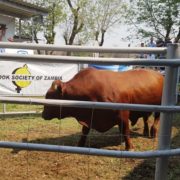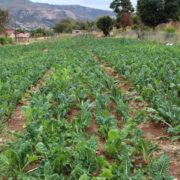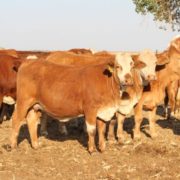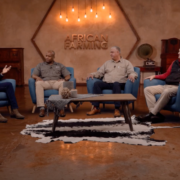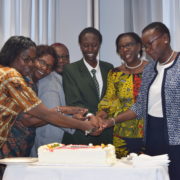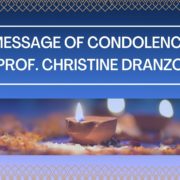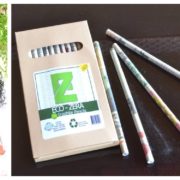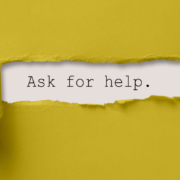Big things are coming to agriculture – African Farming
Agriculture and livestock production are important contributors to the South African economy. It follows that keeping the country’s animal herds healthy is essential to ensure a secure future for the sector. This depends largely on animal vaccines that have been effective in protecting livestock production in South Africa for more than 100 years.
“Great things are coming in the agriculture sector,” says Afrivet learnership manager Siyanda Mabaso. “I’m excited about new improved vaccines that will soon be released. Some of the vaccines we have are no longer effective, because there are a lot of genetic shifts in the strains currently circulating in the field.”
He also points out that new diagnostic approaches will help curb current outbreaks the country is facing, alongside affordable over-the-counter products that will soon become available.
When it comes to curbing disease, Afrivet already plays an important role with one of its recently launched standout products, A.C.T LA. It is a long-acting disinfectant that is scientifically proven to eliminate up to 99.99% of bacteria, fungi and viruses. It also protects your animals from the most economically important livestock diseases including foot and mouth disease and African swine fever.
The company also recently rolled out a pilot vaccination campaign for pigs in Upper Gxulu near Keiskammahoek in the Eastern Cape. Members of the Afrivet One Health Team spent a week in this village to tackle neurocysticercosis, a preventable parasitic infection caused by larval cysts of the pork tapeworm that has infested the rural pig population in the village.
Another indication of exciting things to come in the agriculture sector, Mabaso says, is the Agriculture and Agro-processing Master Plan (AAMP) signed by the Minister of Agriculture, Land Reform and Rural Development Thoko Didiza in May this year.
“If we have the right people with the relevant skills in place, agriculture will be in the driving seat to resuscitate our economy post Covid-19,” he concludes.
To find out more, visit www.afrivet.co.za
The future of farming – African Farming
African Farming host Tony Ndoro discusses the future of farming with panel experts Praveen Dwarika, MD of Afgri’s Lemang Agricultural Services, Allan Sinclair of Vleissentraal Bloemfontein, Ratselane Marumo of Afrivet and our season three featured farmers.
FAWE launches new programme to help reduce incidences of teenage pregnancy in Kenya – Forum for African Women Educationalists: FAWE
On 28th June 2022, FAWE launched a new program which aims at significantly reducing the incidences of teenage pregnancy in Kenya. The program, dubbed Imarisha Msichana (Build her up/Strengthen the girl) will be implemented in 20 counties in Kenya namely: Nakuru, Nairobi, Machakos, Elgeyo Marakwet, Kiambu, Garissa, Bungoma, Kakamega, Nyeri, Migori, Murang’a, Kajiado, Narok, Homa-Bay, Trans-Nzoia, Nyandarua, Busia, Meru, Siaya, and Turkana.
Teenage pregnancies remain a serious and ongoing economic, health and social problem in Kenya. On top of robbing girls of their childhood, it also presents a huge challenge to their capacity to optimize their potential in future contributions to social, economic, and political national development.
Speaking during the launch event held in Nairobi, Kenya, FAWE Africa’s Executive Director Ms. Martha Muhwezi said, “Teenage pregnancy continues to be one of the key hinderances to girl child education in Africa in as whole and Kenya in particular. We have seen instances whereby girls fall pregnant and never resume their education. This perpetuates a vicious cycle of poverty. As FAWE, we endeavor to ensure that girls get equal opportunities at not only education but also in their social and professional lives to achieve their full potential.”
The programme will run for the period of two years, June 2022 to June 2024. The main beneficiaries are teen mothers/adolescents ages of 9 to 18 years and young women aged 19 to 25 years. In the framework of this programme, young girls will be provided with useful knowledge and necessary skills to be able to fully transition to adulthood and help them become productive members of their communities.
“We have chosen this age group because they are young and therefore at risk of missing out on a bright future. It is possible and it has been proven before that a teenage mother can resume her studies and excel in her academics.” Said Ms. Terry Otieno, CEO, FAWE Kenya.
Also speaking during the event and representing Dr. Julius Jwan, Permanent Secretary, Early Learning and Basic Education, Ms. Evelyn Owoko, Ministry of Education Policy and Partnership East Africa Community Affairs said, “We still need to work harder to empower the girl child. Let us remember SDG 4 which talks about lifelong learning and leaving no one behind. Re-entry policies such as the ones advocated by FAWE are key in achieving education for all. As the Ministry, we support organizations in their endeavor to support education.”
The Imarisha Msichana program activities will include collaboration with key stakeholders in generating credible and acceptable data on teenage pregnancies in Kenya that will advise on apt solutions; champion for re-entry of girls to school, sensitization forums for girls, young women, boys, young men, parents, community leaders on human sexuality and prevention of teenage pregnancy and early marriages, media advocacy programmes, and awards of FAWE gender equality ambassadors.
This would entail investing in adolescent girls and young women in the select counties to grow and effectively participate in their society. The selection will also include specific targeting of adolescent girls with disability and displaced/refugee girls. These girls will be consulted on the proposed solutions and where applicable participate in the implementation of the project. The girls will be introduced to FAWE’s Tusemeyouth empowerment programme[1] that enables female youth empowerment and gender awareness by enhancing girls’ self-esteem, leadership, social and life skills, and promotes a positive attitude amongst boys towards girls’ education. Tools of empowerment will include usage of existing Tuseme Manual to establish Tuseme Clubs in participating schools.
Photo caption:
- (From Left) Prof. Genevieve Mwayuli, FAWE Kenya Board Chairperson, Hon. Lina Jebii Kilimo Chief Administrative Secretary for the State Department for Gender, Dr. Margaret Ndanye Vice Chairperson FAWE Kenya, , student from State House Girls’ High School, Ms. Martha Muhwezi, Executive Director FAWE Africa and Ms. Evelyn Owoko, Ministry of Education Policy and Partnership East Africa Community Affairs cut a cake to celebrate the official launch of the Imarisha Msichana Program.
- Participants of the Imarisha Msichana launch pause for a photo after the official launch of the program. The program aims at significantly reducing cases of teenage pregnancy in 20 counties in Kenya.
[1]FAWE Interventions- Tuseme http://fawe.org/our-programmes/interventions/tuseme-youth-empowerment/
Message of condolence – Prof. Christine Dranzoa – Forum for African Women Educationalists: FAWE
Read in the link below FAWE’s official message of condolence following the demise of Prof. Christine Dranzoa.
Wada Kealotswe, an eco-friendly pencil manufacturer from Botswana creating jobs and positively impacting the planet — Lionesses of Africa

What inspired you to start your company?
I was inspired by the love of recycling paper. I was in the 2019 Cohort for a Youth Summit with the World Bank and pitched a paper recycling project that ended up reaching the semifinals. I was motivated to further explore the idea of recycling and ended up finding a niche with recycling newspapers. I also love nature and the thought of knowing that some trees are cut down for the manufacture of wood pencils motivated me to recycle.
Why should anyone use your service or product?
What makes our product special is that it is made from recycled newspapers which could be going to the landfill increasing gases that are not environmentally friendly. Furthermore, the product is 80% handmade which allows us to hire more people and create employment.
Tell us a little about your team
I have a team of 3 who are employed on a permanent basis and who all work in our workshop. The team is talented and has gained experience in the art of perfecting the pencil production. We have also trained 15 young people who are engaged when the work load is beyond our capacity.
Share a little about your entrepreneurial journey. And do you come from an entrepreneurial background?
My entrepreneurial journey started when I was a teenager, I grew up with my grandmother who was an entrepreneur and I guess that rubbed off on me. I wanted to do business and I would sell things to my fellow school mates. After high school when I was about 19, I registered my first company but it was short lived as I had to leave the country to further my studies. During my studies I continued selling cosmetics to my colleagues at the university. After graduating I returned home and tried a few franchises that were not in my country – it failed. I then tried a magazine with a friend but that also failed due to funding. My last attempt before the current business was a paper bag manufacturing company with a friend. This one did not fail because of finances but instead because of a law that was to discontinue single plastic use which was reversed. So I lost clients of paper bags to plastics. I just shifted the company to the current business.
Charlotte Flavienne Binya, an innovative agri-food processing entrepreneur from Cameroon — Lionesses of Africa

What inspired you to start your company?
I have always been a fighter and I have done several varied jobs so far. I created my business from all this experience because it was an obvious choice for me.
Why should anyone use your service or product?
Apart from the fish sausages which were our first innovation in the business, the uniqueness of our products is that they are natural and without chemicals, have a long shelf life, and are made from natural ingredients.
Tell us a little about your team
My team is mainly made up of women, headed by a woman like me. Our accountant is a young graduate of the University of Douala with 2 years’ experience, she is 25 years old. The sales manager is a 32-year-old and a graduate of business school with over 8 years of experience in marketing and customer management.
Share a little about your entrepreneurial journey. And do you come from an entrepreneurial background?
My classic day starts at 4:30am. I get up, I say my prayers, then at 5.00am I go to the market to do my restaurant’s shopping (I forgot to mention, Country Foods is at a branch called Kontry Tchop which is a restaurant chain based in Douala since May 2021). After the shopping I spend time in the kitchen where I cook until 10.00am at the most. After that, I then get ready to go to Country Foods where I supervise the production of our food products and oversee the smooth running of things until 6.00pm, where I then return to the restaurant until 9.00pm…and so on.
Why is it so difficult to ask for help?

by Teboho Seretlo
In an article that I recently read, which led me to a TED talk with the same topic by Heidi Grant, I came across some very useful tips, coupled with a deeper understanding of why I am always struggling to ask for help. I used to be the top student in my class since primary school and getting a prize at every prize-giving ceremony was etched in my childhood memory. Seeing my parents sitting there and watching with pride as I stood up to claim my prize. I never participated in any sports. Could it be that the individual achievement was an incentive for me to perform well and that all the praises were for me and not a team? Could it be that I valued being viewed as an independent person who was good at solving her own challenges without “bothering” others and asking for help? Luckily, as I progressed in life, I quickly learnt that collaborating and asking for help is very normal and was not a sign of weakness on my part.
Some of the points that resonated with me more than others in the article are:
-
If someone agrees to help, let them – and receive it gratefully. Getting help can mean giving up some control. Let the “helper” take ownership of what they have agreed to do. How many of you can relate, that when you are a businesswoman juggling many roles including motherhood, asking your spouse for help to look after the kids or help them with homework while you are busy attending to a deadline or business trip. This can be quite daunting. Sometimes we ask for help, we get a positive response, yet we still want to give a long list of “to-dos” for the spouse on what to do, when and how often. Meaning that we are not giving them full autonomy to do things in the way they are comfortable with. Could this be that we have trust issues? Why assume that my way is always the right way?
-
If the request is denied, consider other options. Do not assume the worst about why someone turned you down. Yes, this sometimes results in us doubting to go and ask for help from the person who turned down our request before. Think about it, maybe the timing of your request was “wrong” – the person could have been swamped with other things at the time hence they could not help. Avoid having those “negative” conversations with yourself about the real reasons why that person declined your request for help. Getting help can also mean asking several people, in any case.
-
Delegation – I have had the opportunity to mentor a lot of business owners and entrepreneurs in my business consulting company. A common thread during these mentoring sessions is how people struggle to delegate and I think that this is also another form of being unable/scared to ask for help. We want to hang on to it all because of the mentality that this is my business, my baby. But this often leads to your staff feelings disempowered or that they are not valued or trusted enough. Let alone the increased chance of burn-out on the part of the business owner. After-all, we all have 24 hours in a day, and we can only do so much.
-
Ask in the face of discomfort. Notice any fear, anxiety or shame that arises as you proceed to ask for help. Label the emotions, summon your courage, and ask anyway. Am I embarrassed to ask for help? Am I scared that my request will be rejected? Personally, I have done this exercise to try and notice any feelings that arise within me when I am about to ask for help. I discovered that fear of rejection is the biggest thing that often keeps me from asking for help.
-
Use assertive communication skills. Be open, direct, and respectful: do not waffle; otherwise, you come across as making a frivolous request that you have not thought through properly.
-
Be as clear as possible about what you need. Try to make your request simple and specific. If you are not sure exactly what kind of help you need, rather ask the person from whom you are seeking help if you can talk it over together.
However, do not be afraid to ask for help. Go ahead, ask for help. It is not a sign of weakness or failure.
Read the original article on this link: https://psyche.co/guides/how-to-ask-for-help-without-discomfort-or-apology?position=10&utm_source=pocket_mylist

Teboho Seretlo is the managing director and founder of Seretlo Investments (Pty) Ltd, a business support services consultancy which assists micro, small and medium enterprises with business intelligence support, business plans and investor pitch decks, funding applications, business cost optimization and business improvement processes. She also ran a franchised premium dry-cleaning outlet of her own for 5 years. She holds a BSc (Hons) in Maths from University of Fort Hare, Management Development Programme (MDP) from GIBS and an International Executive Development Programme (IEDP) GIBS & Rotterdam School of Management. She has over 25 years working experience with corporates such as Nedbank, Momentum, The Coca-Cola Company, SABreweries and Unilever, where she gained experience in a variety of disciplines including B-BBEE &transformation, financial management & budgeting, project management, decision-support, business strategy & analysis as well as research. She is passionate about gender issues and does volunteer work for women empowerment organisations.
More articles by Teboho

